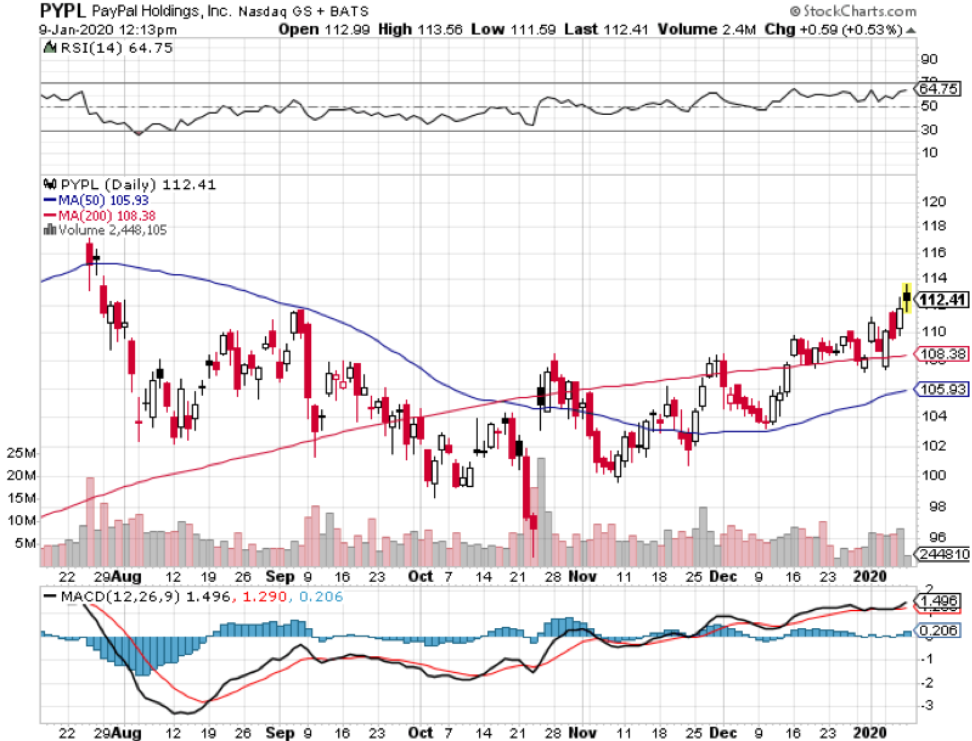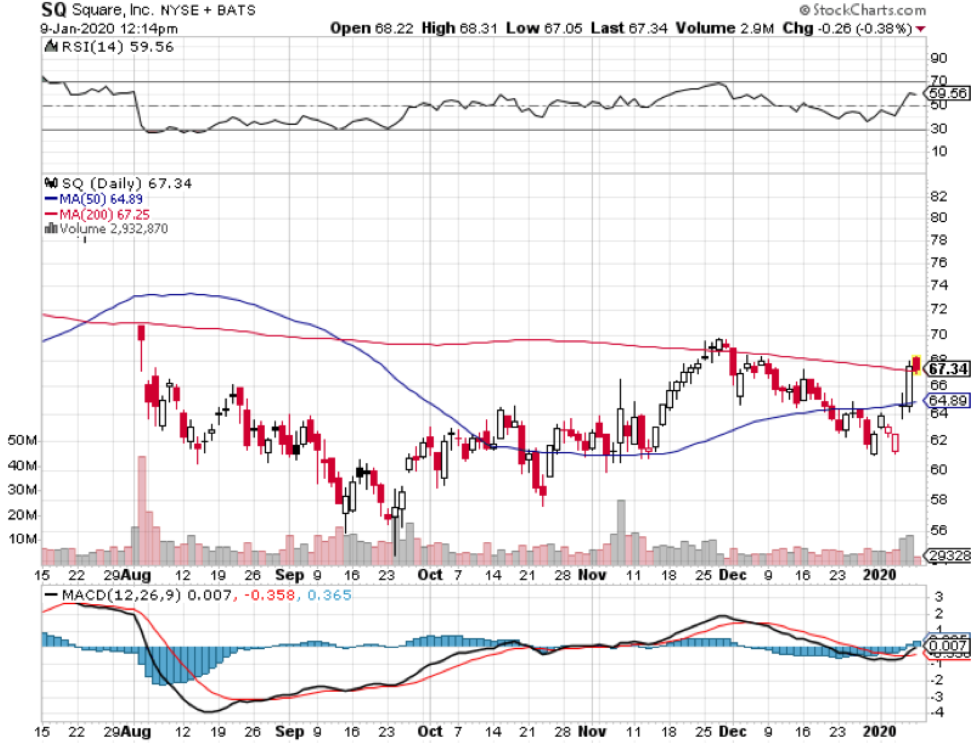Fintech is Going Into Overdrive
Last year was the year of Fintech and 2020 is the year when this industry goes into overdrive.
Let’s take a look at one of my top choices, PayPal (PYPL).
Millennials are the primary customer demographics to the main platform, but the attractiveness of peer-to-peer payment system Venmo is gaining momentum.
PayPal should be on a short list of fintech stocks for investors and there is certainly more room to run for the share price.
Last quarter’s numbers of 9.8 million net new actives mean that PayPal now has 295 million active accounts across all platforms.
Engagement continues to be a bright spot growing by 9% to almost 40 transactions per active account.
Mobile is a major contributor to success with 172 million consumers and 13.8 million merchants.
Venmo processed more than $27 billion in volume for the quarter, growing 64%.
They are doing $300 million in payments per day and an annual run rate that now exceeds $100 billion.
The Venmo team recently inked a deal with Synchrony to provide a Venmo credit card.
Credit products continue to be another gateway to more success with new consumer installment plans in the United States and Germany which allow PayPal customers to pay with streamlined monthly payments.
This capability is already leading to incremental sales and led to signing a long-term strategic partnership agreement with Citi Australia to develop consumer credit products for PayPal's customers in Australia.
Additional relationships were further expanded with Walmart launching PayPal Checkout as the sole payment instrument for its online grocery business in Mexico.
In Japan, PayPal is one of the official partners for the Japanese government's plan to promote cashless payments throughout the country.
PayPal now offers account linking through mobile devices with Capital One and PNC Bank in the United States.
If you thought their international strategy stopped there, there are other irons in the fire.
PayPal became the first non-Chinese payments company to be licensed to provide online payment services in China.
They announced in September that the People's Bank of China has approved a 70% equity interest in GoPay, a license provider of online payment services.
China is a tricky revenue proposition and it’s not guaranteed to flourish on the mainland, but this shows the pro-active way that PayPal seeks to expand its total addressable market and long-term growth prospects.
The license enables PayPal to expand upon relationships with existing partners like China Union Pay and AliExpress and forge fresh partnerships with China's financial institutions and technology platforms.
PayPal’s success has so far depended on innovation and acquisitions - I fully expect this trend to continue in 2020.
PayPal announced it was buying shopping and rewards platform Honey Science Corporation for $4 billion.
This year is the beginning of another compelling one-year bull case aided in part by higher expectations from those diverse set of partnerships, such as with MercadoLibre Inc. and Uber Technologies Inc., along with PayPal’s pricing, Honey online coupon transaction, and Venmo monetization.
I anticipate further sustained overperformance in margin expansion as well.
I expect an overall payments industry-wide volume growth of 11% in 2020 and PayPal will grow into its position in a still healthy broader economy.
Payment sector operating metrics, from credit card volume growth, to enterprise IT budget growth, to U.S. employment growth, are robust supporting the bull case for PayPal in 2020.
Aside from PayPal, my alternative favorites in the payments space that could see anywhere from 7%-20% share appreciation in 2020 are Square (SQ), Mastercard Inc. (MA), and Visa Inc. (V)
It is likely that 2020 will signal a new decade of super growth for the digital payments market.
And I expect PayPal to increase its solid footprint in web, in mobile app platforms, and in retail stores globally through organic growth, acquisitions, and partnerships.
PayPal’s profitable business model and pro-active management will help the share price reach new highs.
However, not only for fintech stocks, but the overall market is ripe for some profit-taking in the short-term because of the recent melt-up.




